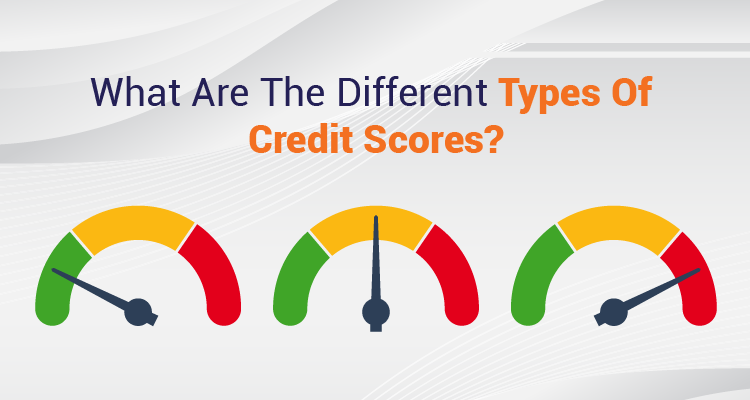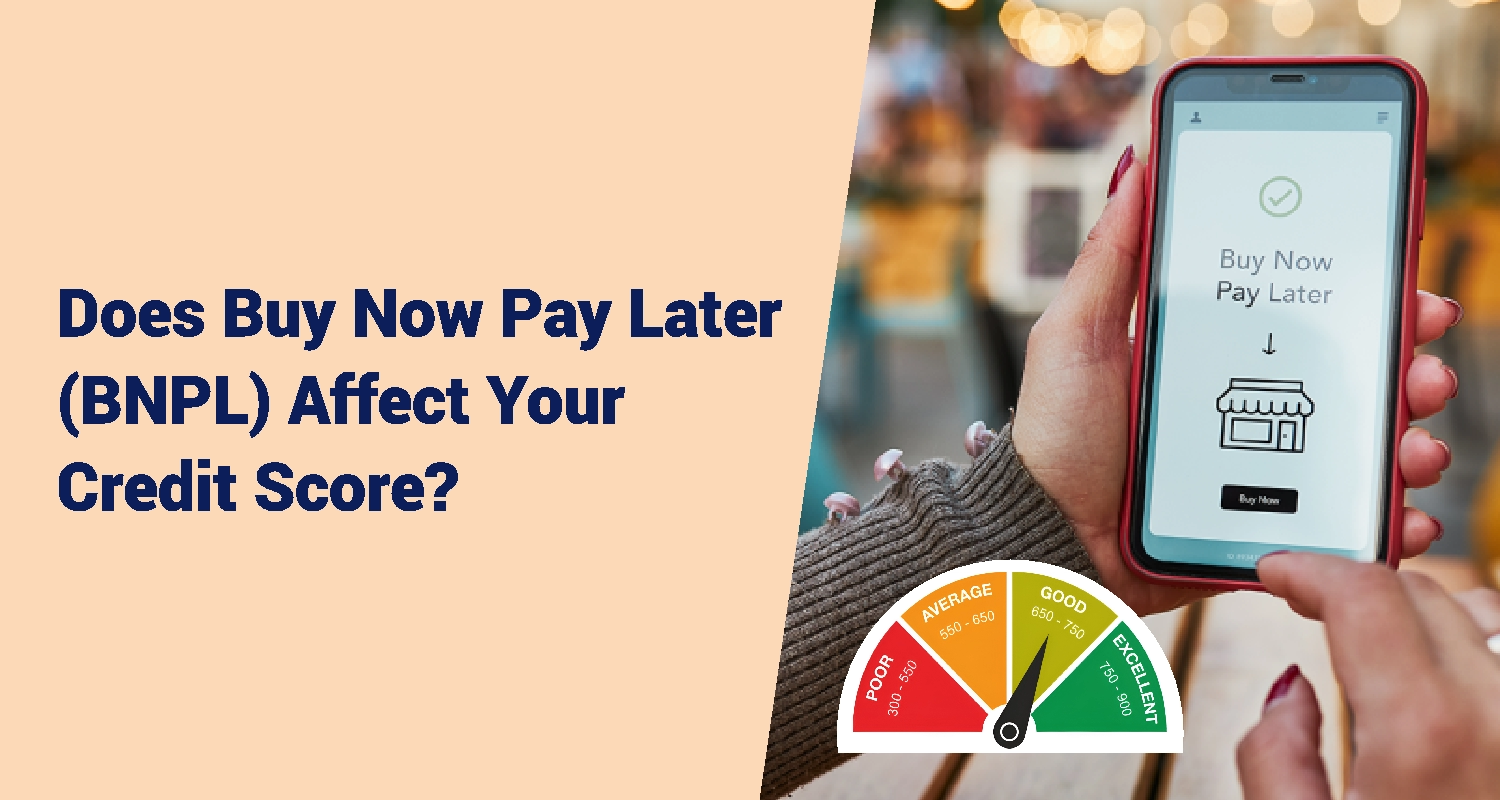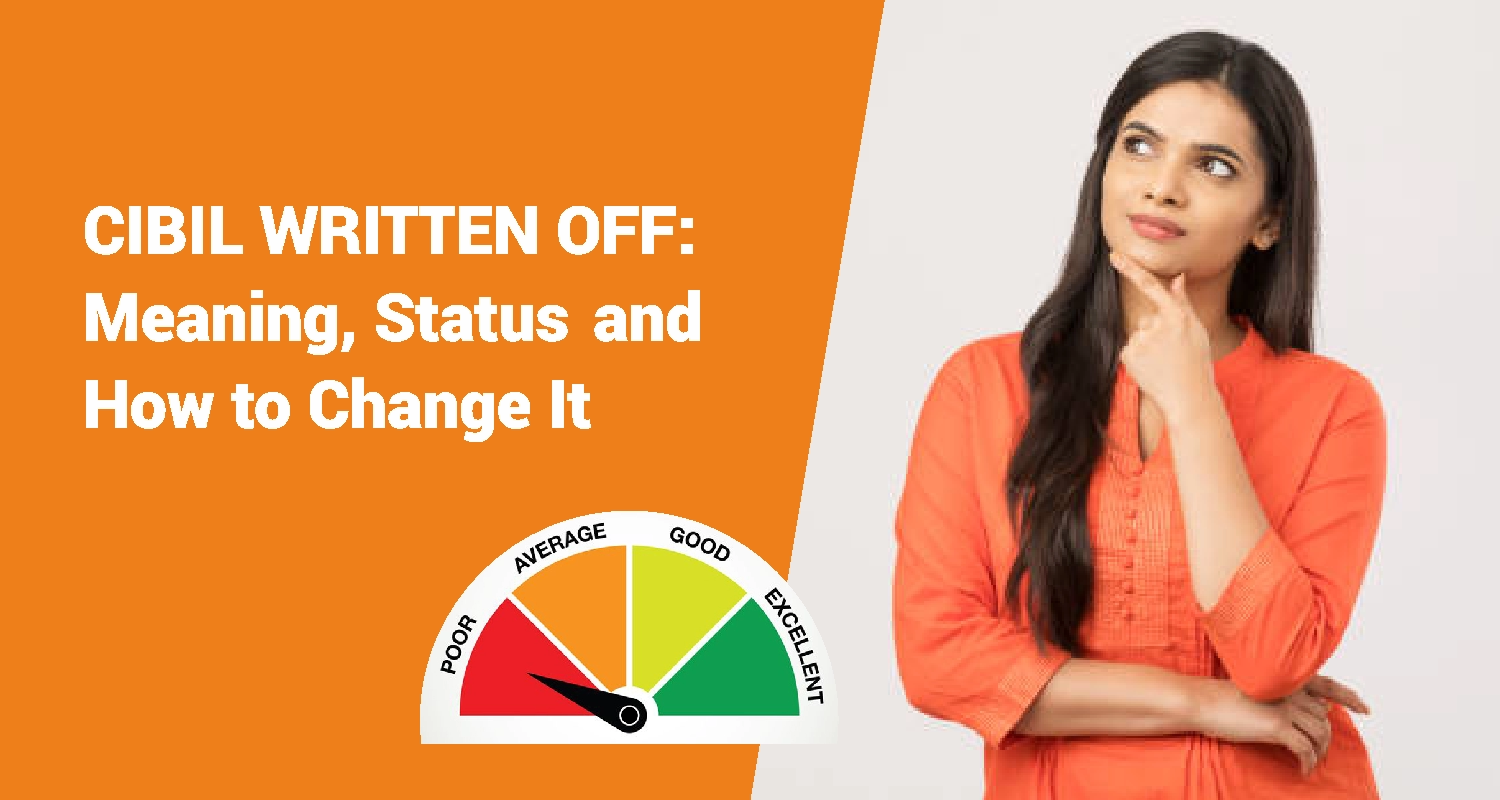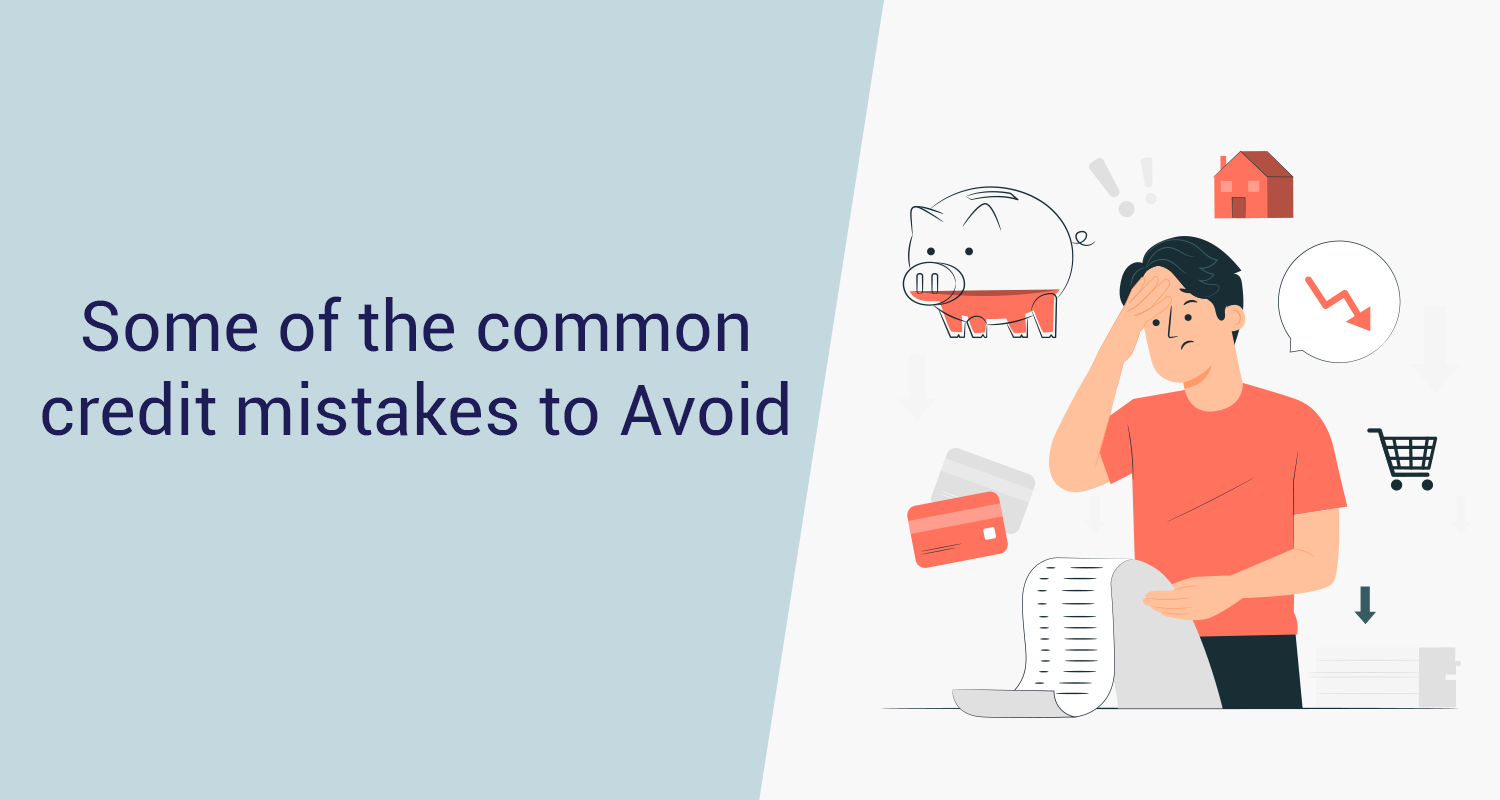What Are The Different Types Of Credit Scores?

Nowadays there can be many situations that call for some form of credit. Be it loans, mortgages, credit cards, etc., most people rely on some form of credit from banks and non-banking financial companies (NBFCs).
Before approving a loan, banks and NBFCs use credit scores and reports to assess the creditworthiness of borrowers. The higher the credit score of the borrower, the better the chance of availing loans at attractive rates.
The credit score is a metric used to rate a borrower’s creditworthiness at a glance. The higher one’s credit score, the better it is. A credit report is used to dive deeper into a borrower’s credit history and status. Both credit scores and reports are provided by credit bureaus which collect, compile, and aggregate all the relevant data to determine an individual's creditworthiness.
How To Read The Credit Score?
In India, credit scores from all the credit bureaus tend to range between 300 and 900, with 900 being the highest possible score. Any score above 700 is generally considered good.
If an individual does not have a credit history, there is no score to calculate, and the score will register as “not applicable” or “no history”.
-
300-549:
A credit score in this range is considered poor. This score indicates that the individual has been late in paying equated monthly installments, credit card bills, or even defaulted on a loan or two. This score means that the credit bureau considers the individual to be at a high risk of becoming a defaulter, and banks and NBFCs would be wary to lend to such individuals.
-
550-649:
A credit score in this range is considered average. This score means the individual has been struggling to keep up with their loans or EMIs. While banks and NBFCs might give a loan, chances are they will charge a higher interest rate.
-
650-749:
A credit score in this range is considered good. This score suggests that the individual is doing the right things for the most part. Most banks and NBFCs will offer loans but still may not offer the best interest rates available.
-
750-900:
A credit score in this range is considered excellent. This score implies that the individual has a solid repayment history and has consistently made credit payments on time. Banks and NBFCs will offer loans to such people at the best interest rate possible. Learn how to achieve a 900 credit score.
Get Gold Loan at the comfort of your home
Apply NowTypes of Credit Bureaus In India
India has four credit bureaus that are licensed by the Reserve Bank of India. They are similar in nature, but have some differences among them.
The four credit bureaus share many similarities, though each one has its own proprietary algorithm which is used to calculate credit scores. Therefore, while credit scores from all the four credit bureaus are valid in India, they might not all give you the same score.
TransUnion CIBIL:
TransUnion CIBIL was established in 2000 and is the oldest and most popular credit bureau in India. CIBIL offers a variety of different products and services. For consumers, it provides CIBIL scores, credit information report, market insights, etc. and for businesses, it provides portfolio review reports, CIBIL company credit information report, CIBIL bureau analyser, etc. It costs Rs 550 for a credit report and score from CIBIL.
How TransUnion CIBIL score calculates credit score Your Transunion CIBIL score is calculated on the basis of four key factors. These include:
- Your payment history - Delaying payments or defaulting on your EMIs can impact your score negatively.
- Your credit mix - If you have a balanced mix of secured and unsecured loans, then it can impact your score positively.
- Your number of enquiries: This could affect negatively as too many loan enquiries indicates that your loan burden is likely to go up in the future.
- Your high credit utilisation: An indication of a rising debt burden over time may negatively impact your score.
Equifax:
Equifax was granted a license by the RBI in 2010. For consumers, it provides credit information reports, Equifax alerts, Equifax portfolio review, Equifax risk score, etc. and for businesses, credit risk and fraud management, portfolio management, industry diagnostics, etc. It costs Rs 400 for a credit report and score from Equifax.
How Equifax score calculates credit score
While calculating your Equifax credit score, factors such as your payment history, the number and type of credit accounts, your used vs. available credit and the length of your credit history are considered. Each factor is given a certain weightage and the payment history carries the maximum weightage.
Experian:
While Experian was established in 2006, it received the license from the RBI in 2010. For consumers it provides Experian credit information reports and for businesses, customer acquisition, collection and money recovery, customer management, data and analytics, and customer targeting and engagement. It costs Rs 399 for a credit report and score from Experian.
How Experian score calculates credit score
The exact method or algorithm used to calculate your Experian score is a well-guarded secret. However the factors considered to arrive at the calculation include your credit behaviour over time. Timely payment of debts, lower credit usage and maintaining a mix of credit cards can help improve your score. On the other hand, late payments, defaults, higher credit usage or multiple new credit applications can negatively impact your score
CRIF High Mark:
CRIF High Mark has been operating since 2007 and received its license from RBI in 2010. For consumers, it provides CRIF High Mark credit information report and microfinance credit reports, and for businesses, commercial score, identification and anti-fraud services, predictive analytics and scorecards.
How CRIF High Mark score calculates credit scoreYour CRIF Highmark credit score reflects your creditworthiness and is calculated on the basis of factors such as the duration of your credit history, the variety of credit accounts you hold, new credit applications, your on-time payment record, and the amount of credit you utilize compared to your available credit limit.
FICO Score
FICO Score is a relatively new entrant in India's lending market. Generated by credit bureaus like Experian, Equifax, and TransUnion, this three-digit number ranges from 300 to 850, with higher scores indicating better credit health. Unlike traditional credit scores, FICO goes beyond traditional financial data. It incorporates a borrower's digital footprint, social media activity, and spending habits to create a more accurate credit profile.
How FICO score calculates credit score
While the exact formula is proprietary, FICO scores generally prioritize payment history (35%), followed by amounts owed (30%), length of credit history (15%), new credit (10%), and credit mix (10%). It's essential to note that these percentages can vary for individual scores.
Conclusion
There are various types of credit bureaus and scores you can receive in India. If you keep repaying your debt on time and build up a good credit history, your credit score will keep improving.
Credit scores are crucial for banks and NBFCs like IIFL Finance for assessing personal and business loan applications. IIFL Finance provides business loan and personal loans through an online application process that reduces the turnaround time. The company offers unsecured business loans of up to Rs 30 lakh and personal loans of up to Rs 5 lakh, and it provides the best interest rates and repayment terms to borrowers with strong credit scores.
FAQs
Q1. What are the 4 types of credit?Ans. The four types of credit are installment loans, open credit, service credit and revolving credit. All of them can significantly help increase your credit score if you make timely prepayments and if your payment history is reported to the credit bureau.
Q2. What are the 5 C's of credit score?Ans. The 5 C's of credit are character, capacity, capital, collateral and conditions. Whenever you apply for a loan, or a new credit card, the lender will want to know if you are capable enough to pay back the money as agreed. They will also look at your creditworthiness, or how you've managed debt so far and whether you can take on more.
Sapna aapka. Business Loan Humara.
Apply NowDisclaimer: The information contained in this post is for general information purposes only. IIFL Finance Limited (including its associates and affiliates) ("the Company") assumes no liability or responsibility for any errors or omissions in the contents of this post and under no circumstances shall the Company be liable for any damage, loss, injury or disappointment etc. suffered by any reader. All information in this post is provided "as is", with no guarantee of completeness, accuracy, timeliness or of the results etc. obtained from the use of this information, and without warranty of any kind, express or implied, including, but not limited to warranties of performance, merchantability and fitness for a particular purpose. Given the changing nature of laws, rules and regulations, there may be delays, omissions or inaccuracies in the information contained in this post. The information on this post is provided with the understanding that the Company is not herein engaged in rendering legal, accounting, tax, or other professional advice and services. As such, it should not be used as a substitute for consultation with professional accounting, tax, legal or other competent advisers. This post may contain views and opinions which are those of the authors and do not necessarily reflect the official policy or position of any other agency or organization. This post may also contain links to external websites that are not provided or maintained by or in any way affiliated with the Company and the Company does not guarantee the accuracy, relevance, timeliness, or completeness of any information on these external websites. Any/ all (Gold/ Personal/ Business) loan product specifications and information that maybe stated in this post are subject to change from time to time, readers are advised to reach out to the Company for current specifications of the said (Gold/ Personal/ Business) loan.



